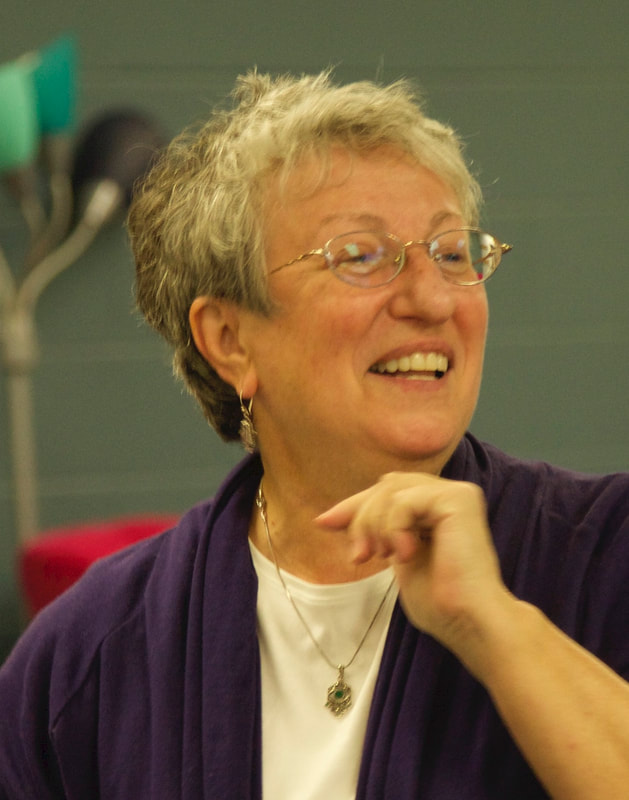ASSAY: A JOURNAL OF NONFICTION STUDIES
6.2
6.2
|
Michael Steinberg was my colleague and friend. He was the one person when I was interviewing for my faculty position at Michigan State who understood the discipline of writing studies, and paved a way for his colleagues to understand what I did with nonfiction.
When I came to Michigan State University as a faculty member in what was then a first-year writing department, it was not a place congenial to anyone interested in nonfiction. It was populated mostly with scholar-teachers who had expertise in history and American studies, and a small but significant number of poets. The fact that I also had a specialization in literary nonfiction slipped completely by the hiring committee, which was concerned only to fill its tenure-track openings so that the department could not easily be eliminated entirely, as had the three other departments providing general education. Into this odd institutional configuration I arrived and was welcomed by Mike Steinberg, the only person among my new colleagues who could talk to me about the teaching of writing writ large, across genres, audiences, and purposes. He spoke with me of scholars, writers, and teachers across the country that we knew in common, and the look in his eyes was intense and hungry. Mike was passionate about powerful writing. He tried to create a community of writers and writing teacher-scholars amidst lots of institutional politics without playing any of the games. He wasn’t interested in making a mark in the profession or at the university; he wasn’t lured into thinking he could make a change in the institutional structures or the minds of his long-time colleagues. He did work hard at creating community and doing his writing. Mike was prescient in creating the journal Fourth Genre, working with the director of the Michigan State University Press. At the time, twenty years ago, there was only one other print journal that focused on literary nonfiction. Its founder had coined the new term, creative nonfiction, in part because it suggested the genre’s institutional home was in creative writing, not literature, which thereby took it out of the control of English departments. Mike was an entrepreneur too, and chose a name for the new journal that also provoked curiosity. To this day writers come up to the Fourth Genre table at AWP asking, “Why fourth? What does the name mean?” Traditional literary studies and Norton anthologies were for decades organized around the tripartite poetry, drama, and fiction. It’s only been in the past 40 years that anyone has been talking about nonfiction as a genre, with its own boundaries and arguments and pedagogies. Mike had a vision, created a community with the journal, worked generously and persistently to gather writers into that community, and created a space for all of us nonfictionistas to speak to one another. He eventually handed off the editing responsibilities for the journal, in order to pay more attention to his own writing and teaching, but he kept a hand in. He was a kind and consistent advocate and supporter of me as editor of his creation. Every time I’d meet up with him and his wife, Carole, at the farmers’ market or at the airport coming or going from AWP or NonfictioNow (where he had organized a panel or hosted a dinner), he’d tell me how pleased he was with the essays in the current issue and the direction the journal was taking. By the time the editor position came to me, the landscape for nonfiction had changed and grown significantly. MFA programs had mushroomed around the country. More journals emerged. The institutional politics and configurations at Michigan State had evolved so that we had a professional writing undergraduate program with students excited about entering the editing and publishing fields, and creative writing majors anxious for experiences that would better prepare them to step into jobs as working writers. Over the ten years that I edited the journal, dozens of undergraduate and graduate students were able to work as interns, in a number of different capacities, to curate and produce Fourth Genre. They read hundreds of submissions each semester, learned how to have conversations about those pieces in which they could disagree respectfully, honor their differing readings, sift personal preference from boundary-pushing work, and develop a complicated and nuanced consensus around what would eventually be printed. In doing so, they learned to see the larger context for decisions about work that’s submitted for publication, that it’s not only an evaluation of the writing itself but a process of choosing which of many really good pieces will make it into print. The interns learned how to correspond with writers in ways that were generative and not judgmental, even while recognizing and honoring the judgements they had, in the end, to make. In weekly staff meetings over pizza and donuts, they worked to develop a community of nonfiction writers that became thrillingly real at each annual AWP conference, when they met the writers they’d read and talked about, when those writers came to thank them for the care we exercised over each submission, even in rejections. In other words, the pages between covers that began as Fourth Genre became over the years a learning laboratory for students. We worked hard to cultivate conversations and relationships with writers, especially not-yet-published writers, especially LGBTQ+ writers, to get their work into print in the best form possible. We made space and time to give substantive feedback to every writer whose work we considered in staff meetings, and in this way tried to contribute to the larger community of nonfiction writers. There were many other ways we fostered bits of community among many of the writers we published: through podcast interviews and conversations at the AWP Bookfair, dinners and off-site readings, multiple friendships and at least two romances. Of all of this, Mike was consistently proud and supportive. He was pleased by the explosion of MFA programs and both print and online venues for publishing nonfiction of all sorts. Though his preference was always for the personal essay and memoir, he loved being challenged and surprised by new forms and voices. He loved celebrating all of it. Now as I hand off the journal and turn to spend time on my own writing, I have to think that Mike would be very pleased with what he created, with the way Fourth Genre has made its mark. All of us who call ourselves nonfiction writers owe him much. |
|
Laura Julier just completed nine years as editor of Fourth Genre. As director of the Professional Writing Program at Michigan State University, she taught courses in editing and publishing, environmental and place-based writing, creative nonfiction, and grammar and style. She is currently on staff as a hospital chaplain in Lansing, MI.
|

